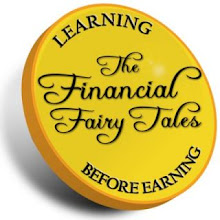Even in the oil rich UAE - Schools need money lessons
There is certainly a lot to learn about money than just counting paper bills. But financial illiteracy still affects a lot of young and old people alike. The thing is, money management skills are not even taught in most schools.
According to the fifth annual Future of Retirement study of HSBC, 62 per cent of people in the UAE have never accessed any form of general financial education. Only 38 per cent feel they understand their short-term finances very well, while only about 19 per cent have a clear idea of what their long-term finances look like.
"Money is probably the most important thing in adult life we simply cannot live without it. So, it is beyond comprehension that we are not taught about money, budgeting, insurance and investment at school. How can a school be happy to let children leave education with an excellent knowledge of Latin and literature, but no idea of how to manage their money," notes Darren Ashley, managing director of Candour Consultancy.
That is why educating children about personal finance and managing money should start early. There are a lot of ways a child can learn about the basic concepts of finance, and video games are just one of them.
"[Educational videos] could certainly help, but these games have to be as attractive as the platform games and first-person shooters it will be competing with," says Ashley.
Gurnos Stonuary, business services director for the Nexus Group of Companies, agrees, saying that "anything that gets children to start thinking and learning about personal finance is a good idea."
"Video games and educational tools are very well able to support good financial planning and can play an important part when they are incorporated into an overall plan to teach children about money," Stonuary says.
However, he points out that a child's home remains the most important learning environment for shaping an individual's attitude and values towards money. He notes that it is in the home where children learn how adults spend, borrow, save, give and invest their money.
"In view of this, it can be hugely beneficial for children to be included in family discussions about money from an early age. This helps them start to understand how income is used and the financial goals the family has identified to work towards," Stonuary says.
Ashley suggests that parents assign children some jobs to do, to earn their pocket money. This will make them think twice before wasting what they've earned on unnecessary stuff.
"Also, get them involved in the family finances. Do not be shy about money. If they know what income the family has and how much goes on the mortgage, paying the utility bills, and why there are bills, they will learn that money is finite and the parents are not simply being unfair when they do not give them more. They will also learn about paying bills and start to understand mortgages," he adds.
It is also a good idea to start a savings plan to save towards the child's future education. It is necessary that the parents get the children involved, make them aware what has been contributed to the savings plan, what the value is, where the money is invested in and why the value is going up or down.
"Not only is this going to benefit the parents and child when it comes to having to pay for secondary or higher education, it will teach them about both saving and investing," Ashley points out.
Stonuary also recommends giving children some allowance or pocket money. The allowance should cover perceived necessities, with an extra amount to encourage them to learn to save and invest.
"Providing children with their own regular allowance at the beginning or the middle of the week encourages them to learn how to stretch their money and to be in a position to enjoy things at the coming weekend. Parents should not come to the rescue every time a child runs out of money or they will never learn money management," Stonuary advises.
Guidelines
"When children receive money, for example as a gift, parents should help them set guidelines on how it will be used. If it is a large gift for say a birthday, encourage children to invest some of the money. In addition, identifying money to be set aside for charity can influence a child to develop a concern for others," he says.
He also suggests creating a money plan with the child. The goal is to encourage the child to consider how much money has to be spent, how much can be saved and given to others in the form of gifts, charity donations. It should also encourage the child to think about what he wants to achieve with the money, what the financial goals are and how much he needs to spend to pay for what he wants and reach his goals.
"It is never too late to help children appreciate the value of money and with last year's unfortunate current economic downturn, even children who have enjoyed a high quality of life in the UAE can start to appreciate that financial plans can suddenly change," Stonuary says

